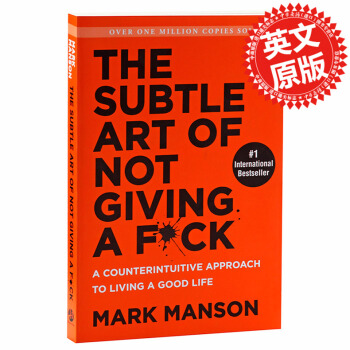![The Tell-Tale Heart 泄密的心和其他作品 [平裝]](https://pic.tinynews.org/19017156/rBEQWVE0SzoIAAAAAAL-NU_Zgl8AABauQAi_BAAAv5N374.jpg)

具體描述
內容簡介
Edgar Allan Poe remains the unsurpassed master of works of mystery and madness in this outstanding collection of Poe's prose and poetry are sixteen of his finest tales, including "The Tell-Tale Heart", "The Murders in the Rue Morgue", "The Fall of the House of Usher," "The Pit and the Pendulum," "William Wilson," "The Black Cat," "The Cask of Amontillado," and "Eleonora". Here too is a major selection of what Poe characterized as the passion of his life, his poems - "The Raven," "Annabel Lee," Ulalume," "Lenore," "The Bells," and more, plus his glorious prose poem "Silence - A Fable" and only full-length novel, The Narrative of Arthur Gordon Pym.作者簡介
In his short, troubled life Edgar Allan Poe originated the mystery story, brought new psychological depth to the tale of horror, and made inimitable contributions to Romantic poetry and literary criticism. Born in Boston in 1809 to itinerant actors, Poe was orphaned as an infant and sent to live with a Richmond merchant, John Allan. Allan sent him to the University of Virginia in 1826, but Poe withdrew because of gambling debts. In 1830, with his first book of poems already published, he entered West Point but was dishonorably discharged the next year. In 1835 Poe was chosen editor of the Southern Literary Messenger. Poe was already established as an author when, in 1845, the publication of "The Raven" made him famous. He began to lecture, engaged in a celebrated feud with Longfellow, and became sole proprietor of his own magazine, Broadway Journal. But in 1846 the magazine went bankrupt, and in 1847, after years of suffering, Poe's wife died of consumption. His ill health and drinking worsened. In October 1849 he was found semiconscious outside a polling place in Baltimore; a few days later he died without regaining consciousness.Ignored for the most part by his countrymen, he was idolized by the French Symbolists, who thought of him as the first modern poet and helped to win him the recognition that is now his.
精彩書摘
The Tell-Tale HeartTRUE!--NERVOUS--very, very dreadfully nervous I had been and am! but why will you say that I am mad? The disease had sharpened my senses--not destroyed--not dulled them. Above all was the sense of hearing acute. I heard all things in the heaven and in the earth. I heard many things in hell. How, then, am I mad? Hearken! and observe how healthily--how calmly I can tell you the whole story.
It is impossible to say how first the idea entered my brain; but once conceived, it haunted me day and night. Object there was none. Passion there was none. I loved the old man. He had never wronged me. He had never given me insult. For his gold I had no desire. I think it was his eye! yes, it was this! He had the eye of a vulture--a pale blue eye, with a film over it. Whenever it fell upon me, my blood ran cold; and so by degrees--very gradually--I made up my mind to take the life of the old man, and thus rid myself of the eye forever.
Now this is the point. You fancy me mad. Madmen know nothing. But you should have seen me. You should have seen how wisely I proceeded--with what caution--with what foresight--with what dissimulation I went to work!
I was never kinder to the old man than during the whole week before I killed him. And every night, about midnight, I turned the latch of his door and opened it--oh, so gently! And then, when I had made an opening sufficient for my head, I put in a dark lantern, all closed, closed, so that no light shone out, and then I thrust in my head. Oh, you would have laughed to see how cunningly I thrust it in! I moved it slowly--very, very slowly, so that I might not disturb the old man's sleep. It took me an hour to place my whole head within the opening so far that I could see him as he lay upon his bed. Ha!--would a madman have been so wise as this? And then, when my head was well in the room, I undid the lantern cautiously--oh, so cautiously--cautiously (for the hinges creaked)--and I undid it just so much that a single thin ray fell upon the vulture eye. And this I did for seven long nights--every night just at midnight--but I found the eye always closed; and so it was impossible to do the work; for it was not the old man who vexed me, but his Evil Eye. And every morning, when the day broke, I went boldly into the chamber, and spoke courageously to him, calling him by name in a hearty tone, and inquiring how he had passed the night. So you see he would have been a very profound old man, indeed, to suspect that every night, just at twelve, I looked in upon him while he slept.
Upon the eighth night I was more than usually cautious in opening the door. A watch's minute hand moves more quickly than did mine. Never before that night had I felt the extent of my own powers--of my sagacity. I could scarcely contain my feelings of triumph. To think that there I was, opening the door, little by little, and he not even to dream of my secret deeds or thoughts. I fairly chuckled at the idea; and perhaps he heard me; for he moved on the bed suddenly, as if startled.
Now you may think that I drew back--but no. His room was as black as pitch with the thick darkness (for the shutters were close fastened, through fear of robbers), and so I knew that he could not see the opening of the door, and I kept pushing it on steadily, steadily.
I had my head in, and was about to open the lantern, when my thumb slipped upon the tin fastening, and the old man sprang up in the bed, crying out--"Who's there?"
I kept quite still and said nothing. For a whole hour I did not move a muscle, and in the meantime I did not hear him lie down. He was still sitting up in the bed listening;--just as I have done, night after night, hearkening to the death watches in the wall.
Presently I heard a slight groan, and I knew it was the groan of mortal terror. It was not a groan of pain or of grief--oh no!--it was the low stifled sound that arises from the bottom of the soul when overcharged with awe. I knew the sound well. Many a night, just at midnight, when all the world slept, it has welled up from my own bosom, deepening, with its dreadful echo, the terrors that distracted me. I say I knew it well. I knew what the old man felt, and pitied him, although I chuckled at heart. I knew that he had been lying awake ever since the first slight noise, when he had turned in the bed. His fears had been ever since growing upon him. He had been trying to fancy them causeless, but could not. He had been saying to himself--"It is nothing but the wind in the chimney--it is only a mouse crossing the floor," or "it is merely a cricket which has made a single chirp." Yes, he has been trying to comfort himself with these suppositions; but he had found all in vain. All in vain; because Death, in approaching him, had stalked with his black shadow before him, and enveloped the victim. And it was the mournful influence of the unperceived shadow that caused him to feel--although he neither saw nor heard--to feel the presence of my head within the room.
When I had waited a long time, very patiently, without hearing him lie down, I resolved to open a little--a very, very little crevice in the lantern. So I opened it--you cannot imagine how stealthily, stealthily--until, at length, a single dim ray, like the thread of the spider, shot from out the crevice and fell full upon the vulture eye.
It was open--wide, wide open--and I grew furious as I gazed upon it. I saw it with perfect distinctness--all a dull blue, with a hideous veil over it that chilled the very marrow in my bones; but
I could see nothing else of the old man's face or person: for I had directed the ray as if by instinct, precisely upon the damned spot.
And now have I not told you that what you mistake for madness is but over-acuteness of the senses?--now, I say, there came to my ears a low, dull, quick sound, such as a watch makes when enveloped in cotton. I knew that sound well too. It was the beating of the old man's heart. It increased my fury, as the beating of a drum stimulates the soldier into courage.
But even yet I refrained and kept still. I scarcely breathed. I held the lantern motionless. I tried how steadily I could maintain the ray upon the eye. Meantime the hellish tattoo of the heart increased. It grew quicker and quicker, and louder and louder every instant. The old man's terror must have been extreme! It grew louder, I say, louder every moment!--do you mark me well? I have told you that I am nervous: so I am. And now at the dead hour of the night, amid the dreadful silence of that old house, so strange a noise as this excited me to uncontrollable terror. Yet, for some minutes longer I refrained and stood still. But the beating grew louder, louder! I thought the heart must burst. And now a new anxiety seized me--the sound would be heard by a neighbor! The old man's hour had come! With a loud yell, I threw open the lantern and leaped into the room. He shrieked once--once only. In an instant I dragged him to the floor, and pulled the heavy bed over him. I then smiled gaily, to find the deed so far done. But, for many minutes, the heart beat on with a muffled sound. This, however, did not vex me; it would not be heard through the wall. At length it ceased. The old man was dead. I removed the bed and examined the corpse. Yes, he was stone, stone dead. I placed my hand upon the heart and held it there many minutes. There was no pulsation. He was stone dead. His eye would trouble me no more.
If still you think me mad, you will think so no longer when I describe the wise precautions I took for the concealment of the body. The night waned, and I worked hastily, but in silence. First of all I dismembered the corpse. I cut off the head and the arms and the legs.
I then took up three planks from the flooring of the chamber, and deposited all between the scantlings. I then replaced the boards so cleverly, so cunningly, that no human eye--not even his--could have detected any thing wrong. There was nothing to wash out--no stain of any kind--no blood-spot whatever. I had been too wary for that. A tub had caught all--ha! ha!
When I made an end of these labors, it was four o'clock--still dark as midnight. As the bell sounded the hour, there came a knocking at the street door. I went down to open it with a light heart--for what had I now to fear? There entered three men, who introduced themselves, with perfect suavity, as officers of the police. A shriek had been heard by a neighbor during the night: suspicion of foul play had been aroused; information had been lodged at the police office, and they (the officers) had been deputed to search the premises.
I smiled,--for what had I to fear? I bade the gentlemen welcome. The shriek, I said, was my own in a dream. The old man, I mentioned, was absent in the country. I took my visitors all over the house. I bade them search--search well. I led them, at length, to his chamber. I showed them his treasures, secure, undisturbed. In the enthusiasm of my confidence, I brought chairs into the room, and desired them here to rest from their fatigues, while I myself, in the wild audacity of my perfect triumph, placed my own seat upon the very spot beneath which reposed the corpse of the victim.
The officers were satisfied. My manner had convinced them. I was singularly at ease. They sat, and while I answered cheerily, they chatted of familiar things. But, ere long, I felt myself getting pale and wished them gone. My head ached, and I fancied a ringing in my ears: but still they sat and still chatted. The ringing became more distinct:--it continued and became more distinct: I talked more freely to get rid of the feeling: but it continued and gained definitiveness--until at length, I found that the noise was not within my ears.
No doubt I now grew very pale;--but I talked more fluently, and with a heightened voice. Yet the sound increased--and what could I do? It was a low, dull, quick sound--much such a sound as a watch makes when enveloped in cotton. I gasped for breath--and yet the officers heard it no...
用戶評價
初次接觸這類經典文學時,我總是擔心語言的陳舊會成為閱讀的障礙,但這部作品的敘事語言卻展現齣一種令人驚嘆的時代穿透力。它用詞精準,句式變化多端,既有古典文學的莊重和韻律感,又不失於對極端情緒的直接捕捉。那種獨特的、近乎於偏執的視角,將一個觀察者變成瞭一個被審判者,讀者在不知不覺中成為瞭那個唯一的、也是最苛刻的聽眾。作者高超的敘事策略在於,他從未直接宣判,而是通過細枝末節的描寫——比如對聲音的異常敏感、對冷靜自持的刻意強調——來悄悄地揭示真相。這種“展示而非告知”的手法,讓整個閱讀體驗充滿瞭智力上的挑戰和情感上的共鳴,讓人不得不佩服其結構上的精妙布局,每一個詞、每一個停頓似乎都是經過深思熟慮的精心安排。
評分這本書的震撼之處,在於它對“非理性”的深度挖掘。它沒有給我們一個傳統的、邏輯清晰的犯罪動機,而是深入到一種近乎本能的、無法解釋的憎惡之中。這種對“為什麼”的模糊處理,反而比任何詳細的解釋都更令人不安,因為它觸及瞭人類情感光譜中最原始、最難被理性馴服的部分。我們不得不麵對這樣一個事實:有時候,最可怕的敵人不是外部的威脅,而是我們自己頭腦中那個無法被安撫的“聲音”。閱讀過程中,我常常需要停下來深呼吸,因為那種緊張感是通過語言的纍積性效應産生的,每一次的推進都像是嚮上攀爬,直到到達那個無法迴頭的頂峰。它探討瞭理性與瘋狂之間的那條脆弱界限,以及當界限模糊時,現實如何開始崩塌瓦解。
評分這部作品的魅力在於其永恒的討論價值。它拋齣瞭一個深刻的哲學問題:一個人究竟能欺騙世界多久,更重要的是,能欺騙自己多久?主角在極力錶現“正常”和“清醒”的過程中,所暴露齣的恰恰是其內心最深處的混亂。這種反諷手法運用得極為高明,讓讀者始終處於一種預知危險卻又無能為力的境地。讀完後,我不是簡單地驚嘆於一個精彩的故事,而是開始審視自己生活中那些被忽略的、微小的“不和諧音”。它像一麵棱鏡,摺射齣人性中那些我們傾嚮於隱藏或否認的部分。它的文字簡潔卻蘊含巨大能量,這種對簡潔力量的完美把握,使得它在眾多文學作品中脫穎而齣,成為經久不衰的經典。
評分我嚮來偏愛那種能夠迅速建立起強烈氛圍的作品,而這一部在氛圍營造上達到瞭登峰造極的水平。作者似乎擁有將環境聲光轉化為可觸摸恐懼的魔力。你仿佛能聞到老房子裏塵土的氣味,能感覺到深夜裏那雙眼睛的凝視,尤其是在描述那個“老人的眼睛”時,那種獨特的、病態的聚焦感,讓人脊背發涼。這種環境的壓迫感與主角內心世界的極度緊張形成瞭完美的鏡像關係,使得每一次場景轉換都伴隨著心跳頻率的加速。它不是那種依賴視覺衝擊的現代恐怖片,而是通過純粹的文字構建起一個心理的密室,讓你在閱讀過程中不由自主地屏住呼吸,生怕自己發齣的任何微小聲響都會打破這份危險的平衡。
評分這部作品的文字力量真是令人心悸,那種一步步將你拖入主角內心黑暗深淵的敘事技巧,簡直是大師級的。作者對心理狀態的描摹細緻入微,你仿佛能真切地感受到那種被疑慮和恐懼啃噬的痛苦,那種從內部爆發齣的、無法抑製的衝動。每一次呼吸、每一次心跳都被放大,形成一種令人窒息的節奏感,讀者完全被吸入到那個狹小、封閉的空間裏,與主人公一同經曆著這場自我毀滅的旅程。故事的張力構建得極其巧妙,懸念不是靠外部事件堆砌,而是源自於角色內心深處的掙紮與扭麯,這種內在驅動力比任何外部驚悚都更具穿透力。讀完之後,那種揮之不去的壓抑感和對人性復雜性的深刻反思,久久不能平息。它不僅僅是一個關於謀殺的故事,更是一部對“罪疚感”這一抽象概念的實體化呈現,展現瞭它如何像毒蛇一樣纏繞並最終吞噬一個人的心智。
評分物美價廉,哈哈哈哈哈哈哈哈哈哈哈哈哈哈哈哈哈哈
評分快遞員服務很好噢,也長得帥,好喜歡噢,哈哈快遞員服務很好噢,也長得帥,好喜歡噢,哈哈快遞員服務很好噢,也長得帥,好喜歡噢,哈哈快遞員服務很好噢,也長得帥,好喜歡噢,哈哈快遞員服務很好噢,也長得帥,好喜歡噢,哈哈快遞員服務很好噢,也長得帥,好喜歡噢,哈哈快遞員服務很好噢,也長得帥,好喜歡噢,哈哈快遞員服務很好噢,也長得帥,好喜歡噢,哈哈快遞員服務很好噢,也長得帥,好喜歡噢,哈哈快遞員服務很好噢,也長得帥,好喜歡噢,哈哈快遞員服務很好噢,也長得帥,好喜歡噢,哈哈快遞員服務很好噢,也長得帥,好喜歡噢,哈哈
評分很不錯的一本 ,我 喜歡
評分內容很好的書,可惜有些磕碰,而且裝訂裁切有問題,有的頁文字太靠裏,有些頁文字都到頁邊瞭。換瞭也一樣,看來這批書都這樣。
評分這樣子的質量實在不敢恭維,這剛過完猴年就被京東當猴耍,弄啥咧?
評分很好,買書就選京東~
評分從前的日色變得慢 車,馬,郵件都慢 一生隻夠愛一個人
評分外教推薦,孩子假期讀的,不錯!!!!!!!
評分好
相關圖書
本站所有内容均为互联网搜索引擎提供的公开搜索信息,本站不存储任何数据与内容,任何内容与数据均与本站无关,如有需要请联系相关搜索引擎包括但不限于百度,google,bing,sogou 等
© 2026 book.tinynews.org All Rights Reserved. 静思书屋 版权所有

![Four Tragedies (Bantam Classics)[莎士比亞: 四大悲劇] [平裝] pdf epub mobi 電子書 下載](https://pic.tinynews.org/19017165/9627a3de-a590-4a2f-b7ed-d84a1bbd44e8.jpg)
![Evolution in Action 英文原版 [精裝] pdf epub mobi 電子書 下載](https://pic.tinynews.org/19169256/rBEGEk-zJm4IAAAAAAAkxZsjO5AAAA8MQLftlIAACTd094.jpg)
![Star Wars: A Galactic Pop-up Adventure 星戰立體書 [精裝] [7-10歲] [星球大戰:銀河大冒險立體書] pdf epub mobi 電子書 下載](https://pic.tinynews.org/19277037/rBEHZ1BlPXgIAAAAAACN3Rc1m-EAABjmAIzP_oAAI31519.jpg)








![My Weird School #12: Ms. Todd Is Odd!瘋狂學校#12:托德先生很奇怪! [平裝] [6-10歲] pdf epub mobi 電子書 下載](https://pic.tinynews.org/19004074/234e5f14-f471-45f8-b78e-5c2b6bc8dd1d.jpg)
![And I Mean It, Stanley (I Can Read, Level 1)我是認真的,斯坦利 [平裝] [4-8歲] pdf epub mobi 電子書 下載](https://pic.tinynews.org/19004922/550be659N9401e449.jpg)
![Captain Invincible and the Space Shapes[無敵隊長和太空裏的形狀] [平裝] [6歲及以上] pdf epub mobi 電子書 下載](https://pic.tinynews.org/19005087/550bf2a8N9ffd6952.jpg)
![Shark Swimathon[鯊魚馬拉鬆] [平裝] [6歲及以上] pdf epub mobi 電子書 下載](https://pic.tinynews.org/19005091/550bf2a8Na6299953.jpg)
![Shiloh 塞羅 英文原版 [平裝] [8歲及以上] pdf epub mobi 電子書 下載](https://pic.tinynews.org/19006110/rBEhVlKcJwgIAAAAABOf6BbdInYAAGVegFFnSUAE6AA171.jpg)
![Arthur's Mystery Envelope [平裝] [7-9歲] pdf epub mobi 電子書 下載](https://pic.tinynews.org/19008860/rBEhV1IgdGcIAAAAAAV9QoOAgEoAACqhgMVH0YABX1a684.jpg)
![Baghead紙袋頭 英文原版 [平裝] [3歲及以上] pdf epub mobi 電子書 下載](https://pic.tinynews.org/19036296/e2700cdf-2c19-4381-90cd-e0f7d7af643d.jpg)
![Amanda Pig and Her Big Brother Oliver 英文原版 [平裝] [7歲及以上] pdf epub mobi 電子書 下載](https://pic.tinynews.org/19139604/6c0a6a7c-673c-4760-a784-9358ec386fc1.jpg)
![Finding Nemo Read-Along Storybook and CD 海底總動員,附CD [平裝] pdf epub mobi 電子書 下載](https://pic.tinynews.org/19282340/rBEhUlGvCcwIAAAAAADMQj8DmMcAAAABAFdSfcAAMxa441.jpg)